
People

Thomas Banchoff
Thomas Banchoff is director of the Berkley Center for Religion, Peace, and World Affairs and serves as vice president for global engagement at Georgetown University, where he is a professor in the Department of Government and the Walsh School of Foreign Service. He is a co-convener of the Georgetown Global Dialogues and co-chairs the Task Force on Global Citizenship of the International Association of Jesuit Universities.

Jane Fitzpatrick
Jane Fitzpatrick is a project manager supporting student programs at the Berkley Center for Religion, Peace, and World Affairs at Georgetown University. Jane has specialized in researching the interconnections among religious traditions, international affairs, and the arts, and she has become passionate about inclusivity in respectful, open dialogue. Jane received her master's degree in international affairs from the Pennsylvania State University and her bachelor's degree in religious studies from Gettysburg College.

Nicholas Scrimenti
Nick Scrimenti (C‘18) is the director of student programs at the Berkley Center for Religion, Peace, and World Affairs at Georgetown University. A dialogue facilitator, spiritual director, and educator, he leads the center’s student-facing curricular and co-curricular initiatives on interreligious understanding, global citizenship, and engagement across difference. He also directs international fellowship programs and immersion experiences that connect Georgetown and international students through sustained cross-cultural dialogue. Before his current role, he served as project associate for the Berkley Center’s Culture of Encounter Project and previously lived and worked at the Bonnevaux Center for Peace, a lay-monastic retreat center in rural France.
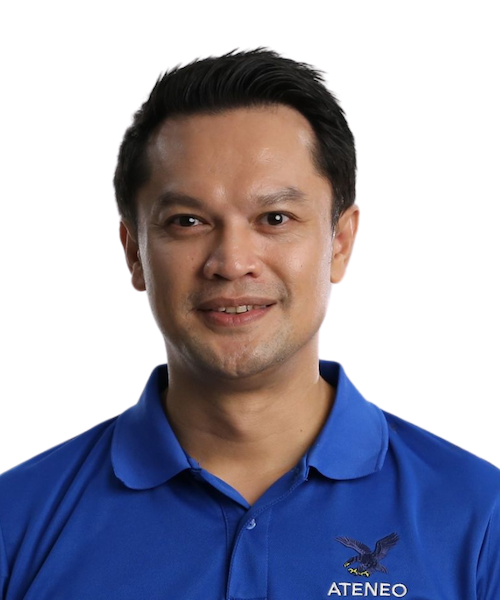
Mark Anthony D. Abenir
Mark Anthony D. Abenir is an associate professor of development studies and the service-learning program manager at the Ateneo de Manila University. A dedicated practitioner-scholar, he integrates service-learning as a key pedagogical approach in his courses on community development and social change, project management, and sustainable development. He also serves as section co-editor of the International Journal of Research on Service-Learning and Community Engagement (IARSLCE). His expertise lies in the design, implementation, monitoring, and evaluation of community, social welfare, and poverty reduction programs that are participatory, people-centered, gender-sensitive, and rights-based. His research interests include service-learning and community engagement in higher education, grassroots social and community development, studies on children and youth empowerment, and disaster management and resilience. He holds a doctoral degree in social development and a master's degree in community development, both with a focus on social development planning and administration. He is a member of the Global Citizenship Curriculum Project Faculty Working Group.
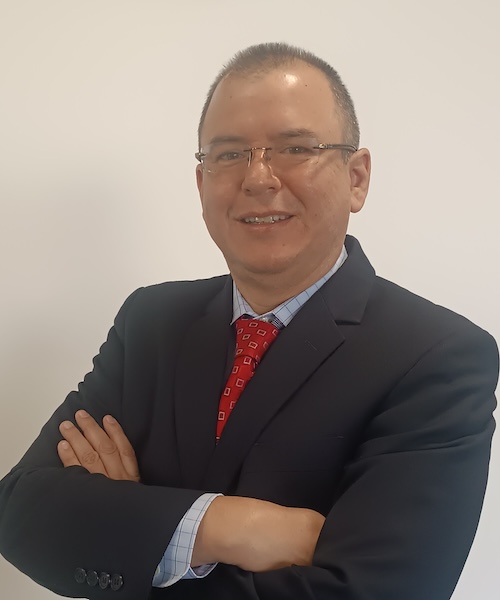
Juan Javier Aguiar Román
Juan Javier Aguiar Román is a professor of law at the Pontifical Catholic University of Ecuador (PUCE) in Quito. His teaching and research focus on legal history, theory, and mechanisms of alternative dispute resolution (ADR). He teaches courses such as fundamentals of law, history and sociology of law, and ADR, emphasizing the role of dialogue and consensus in strengthening Ecuador’s legal culture. His scholarly work includes studies on the historical development of Ecuadorian law and its evolving approaches to social inclusion and justice. He is a member of the Global Citizenship Curriculum Project Faculty Working Group.
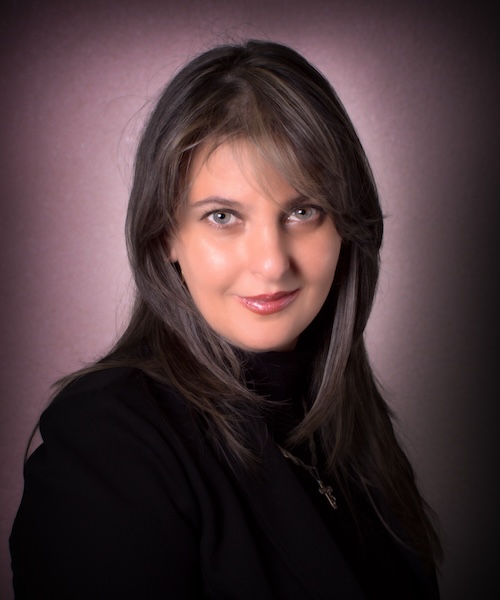
Liliya Harutyunyan
Liliya Harutyunyan has been working for Pontificia Universidad Católica del Ecuador (PUCE) for twenty years. She has taught subjects related to academic reading and writing in Spanish as well as in English, international cooperation, conflict resolution, global affairs, globalization, research, and more. Harutyunyan was the first coordinator of the languages applied to global studies major at PUCE, she has been a member of her faculty committee and was in charge of faculty internalization, and she has served as director of several outreach and research projects. She is a member of the Global Citizenship Curriculum Project Faculty Working Group.
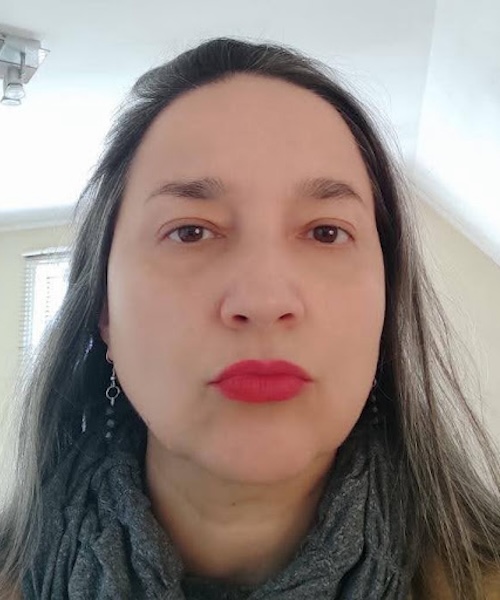
Roxana Henriquez Maugard
Roxana Henriquez Maugard is a professor at Universidad Alberto Hurtado in Chile. She is a teacher of English and journalist with experience teaching Latin American culture, Spanish, Hispanic American short stories, Spanish grammar and poetry, Latin American gender issues, intercultural communication, English for specific purposes and other classes for different universities and the Chilean Navy. She is a member of the Global Citizenship Curriculum Project Faculty Working Group.
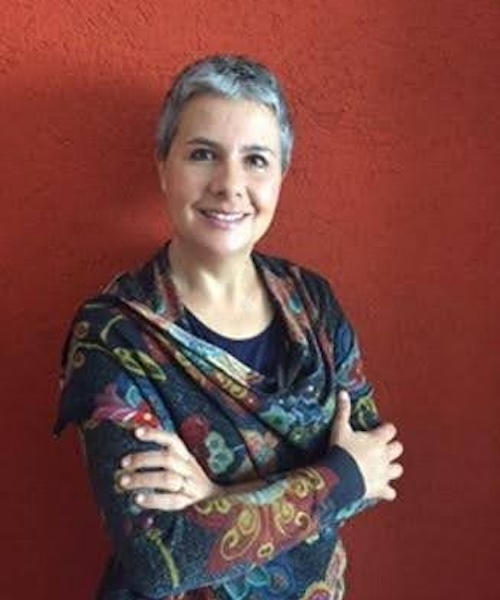
María Eugenia Ibarrarán
María Eugenia Ibarrarán is a researcher at the Xabier Gorostiaga SJ Environmental Research Institute of the Universidad Iberoamericana Puebla. She obtained a PhD in geography, with a specialty in energy and environmental studies at Boston University, and a bachelor's degree in economics from the Instituto Tecnológico Autónomo de México. Her area of research is environmental economics, in particular, oriented to the economics of climate change, air pollution and economic valuation of environmental quality. She participates as a member of the Scientific Council of the Megalopolitan Environmental Commission (CAMe), presides the Technical Council of Climate Change of the State of Puebla, Social Counselor for the Evaluation of the National Climate Change Policy, and as a member of the National System of Researchers in Mexico. She tutors the Global Environmental Citizenship Course of the Magis Exchange Program, and she is a member of the Global Citizenship Curriculum Project Faculty Working Group.
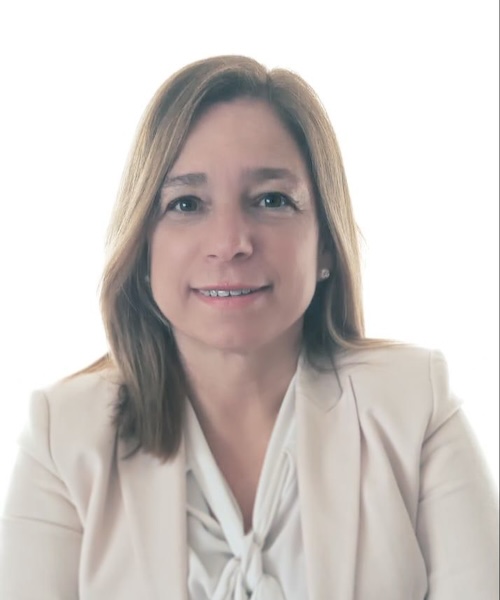
Laura Muro
Laura Muro is a professor of accounting and international business sustainability at Saint Louis University (SLU), Madrid Campus. Her research focuses on corporate governance and business sustainability, with a strong emphasis on environmental and social responsibility. She has represented SLU at high-level events, including the United Nations Summit of the Future, where she contributed to transformative dialogues on the 2030 Agenda and financing for development, and she has served as a panelist at international conferences addressing sustainability and social justice. Muro was awarded SLU's "Distinguished Faculty Award" (2021) and the Honorary Fellowship at the Hanken Centre for Accounting, Finance, and Governance (2022). Her work has been published in top-tier journals. She has spoken at institutions such as the University of Cambridge and Trinity College. Through her teaching, research, and public engagement, Muro inspires future leaders committed to a more just and sustainable world. She is a member of the Global Citizenship Curriculum Project Faculty Working Group.
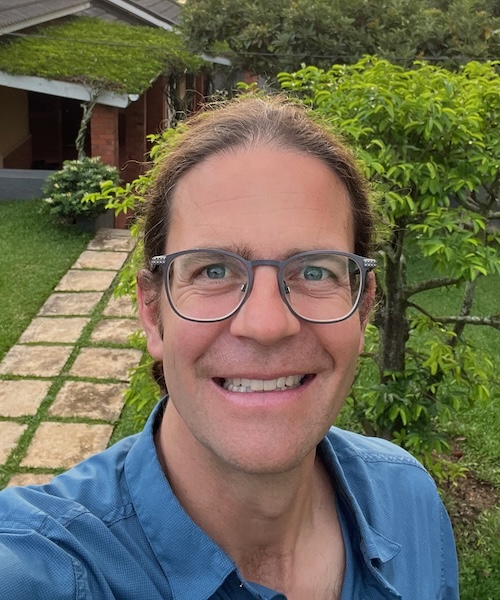
Cyrus P. Olsen III
Dr. Cyrus P. Olsen III, D.Phil. (Oxon.), is a professor at The University of Scranton in Scranton, Pennsylvania. Recipient of the University Provost's “Excellence in Advancing Global Learning” award (2025), Dr. Olsen’s pedagogy is deeply informed by lived experience and scholarly engagement across Africa, Europe, and the U.S. A fellow of Harvard Medical School’s Human Network Initiative and co-PI on a Templeton-funded Uganda-based project integrating brain health, social networks, and spiritual ecology, he pairs theological training with global health research. He has held the endowed Lo Schiavo Chair in Catholic Social Thought at the University of San Francisco and contributed to AI ethics dialogues at Oxford and the United Nations. With over two decades teaching diverse learners—including first-year seminars, global theology, race and religion, and civic leadership—Dr. Olsen models transdisciplinary education rooted in global responsibility, justice, and care for the common good, aligning with Georgetown’s Jesuit mission and the values of global citizenship. He is a member of the Global Citizenship Curriculum Project Faculty Working Group.
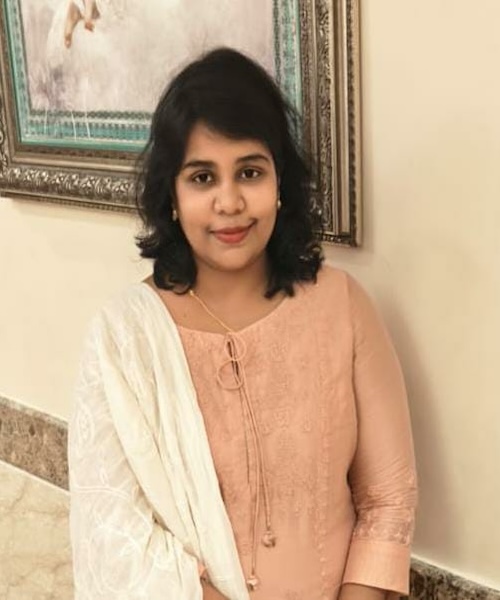
Theboral P.
Theboral P. is a faculty member in the department of sociology at Loyola College, Chennai, where she has been teaching since 2012. She is currently pursuing her Ph.D. in sociology at VIT University, building upon her academic foundation with a master’s degree in medical sociology from Loyola College. She also holds a bachelor’s degree in business administration from Women’s Christian College, Chennai, and qualified for the UGC-NET in sociology. She has contributed to multiple funded research projects, including studies on the socio-economic and ethical impact of artificial intelligence on workplace well-being, substance use and process addiction among students, migrant neglect and ethical business practices, and health-seeking behaviors in Tamil Nadu. She has published in peer-reviewed and Scopus-indexed journals such as Universal Journal of Public Health and Asian Journal of Human Services and contributed chapters to edited volumes addressing social health, reproductive rights, and sustainable practices. Her works explore diverse sociological themes, including early marriage, postpartum depression, gendered experiences of abortion, and the influence of social media on consumer behavior. Beyond teaching and research, she has held various academic leadership roles at Loyola College, including Youth Red Cross Society (YRCS) Club Coordinator, PG Programme Coordinator, IQAC in-charge, and Additional Director of Resource Centre for the Differently Abled. She is a member of the Global Citizenship Curriculum Project Faculty Working Group.
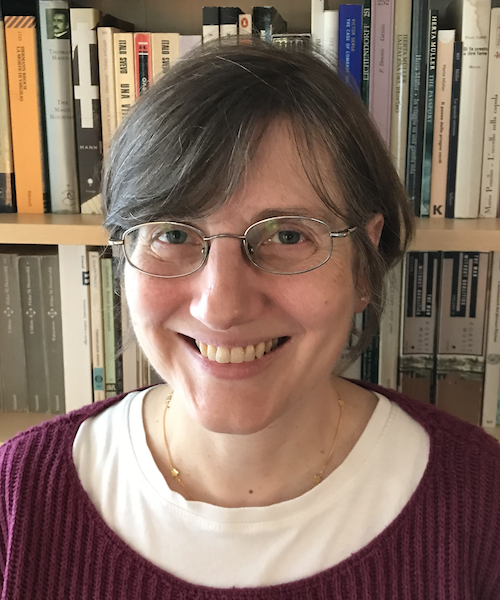
Francesca Parmeggiani
Francesca Parmeggiani holds degrees from the University of Bologna (Italy) and Indiana University-Bloomington (USA). She is Professor of Italian and Comparative Literature at Fordham University in New York (USA). She teaches 20th- and 21st-century Italian literature and cinema. Her research focuses on contemporary Italian literature and culture with special interests in the interplay of politics and religion in literature and film, women’s writing, and feminist theory. She is the author of a study of the fictional adaptations of Scripture by Italian writers in the 1960s and 1970s, and the co-editor of three volumes on the representation of violence in Italian culture, on poetry and prayer in the Italian literary tradition from the Middle Ages to the present, and on Krzysztof Kieślowski’s TV cycle, The Decalogue. Her articles have appeared in Annali d’Italianistica, Autografo, Cahiers d’études italiennes, Forum Italicum, Italica, Italianistica, Romance Languages, and IMAGES, among other venues. She has been collaborating with Patrizia Guarnieri (History, University of Florence) on the Digital Humanities project, Intellettuali in fuga dall’Italia fascista / Intellectuals Displaced from Fascist Italy as a translator and editor of translations. She is a member of the Global Citizenship Curriculum Project Faculty Working Group.
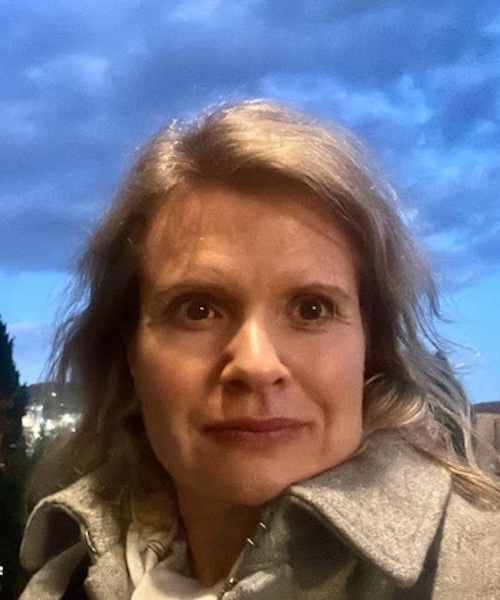
Ildikó Szegedy-Maszák
Ildikó Szegedy-Maszák, Ph.D., is a faculty member of Pontificia Universidad Javeriana Law School Bogotá and director of the Master Program in Economic Law. She is a lawyer of ELTE Budapest University with LLM of London School of Economics and Political Science and Ph.D. in Sociology of Law and Political Institutions of Universidad Externado de Colombia. Szedegy-Maszák is an honorary adjunct professor of Budapest Corvinus University and a visiting professor of Universidad Pontificia Comillas Madrid and University of Cincinnati Law School. She is Honorary Consul of Hungary in Barranquilla. Her research is in international trade; comparative economic policies and the European Union. Szegedy-Maszák's latest writings are “La competencia y las empresas controladas por estados de economías de no mercado: el caso de la China” (Legis, 2024); “Sostenibilidad y OMC: La necesidad de reestructurar las normas de antidumping y antisubvenciones de la OMC – conflictos comerciales entre China y EE.UU.” (Tirant Lo Blanch, 2025). She is an international media commentator, and she is a member of the Global Citizenship Curriculum Project Faculty Working Group.
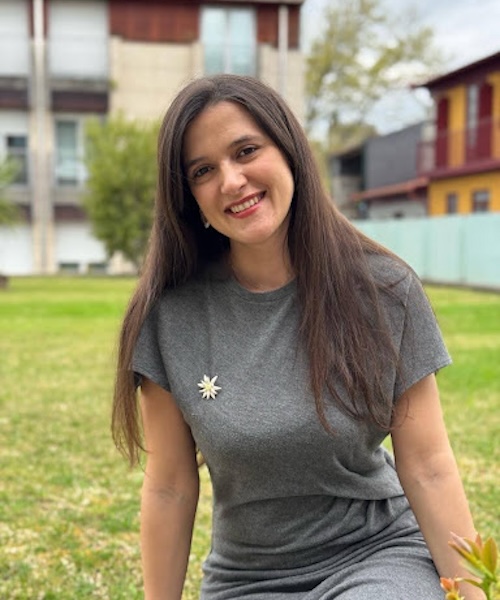
Catarina Vieira da Silva
Catarina Vieira da Silva is an assistant professor for the Faculty of Philosophy and Social Sciences at Universidade Católica Portuguesa. She holds a degree in social work from Universidade de Coimbra and a master's in social work from Universidade Católica Portuguesa. Vieira da Silva completed a PhD in social work through the interuniversity doctoral program at Universidade de Coimbra and Universidade Católica Portuguesa. She currently coordinates the bachelor's degree program in social work and the master's degree program in applied social gerontology. Since 2013, Vieira da Silva has served as the technical coordinator of a private institution of social solidarity, providing social support for older adults. Vieira da Silva is also a researcher at the Center for Philosophical and Humanistic Studies (CEFH). Her research interests include poverty studies, vulnerability and social exclusion, gerontological social work, global citizenship, innovative teaching methodologies, and sustainable development. She is a member of the Global Citizenship Curriculum Project Faculty Working Group.
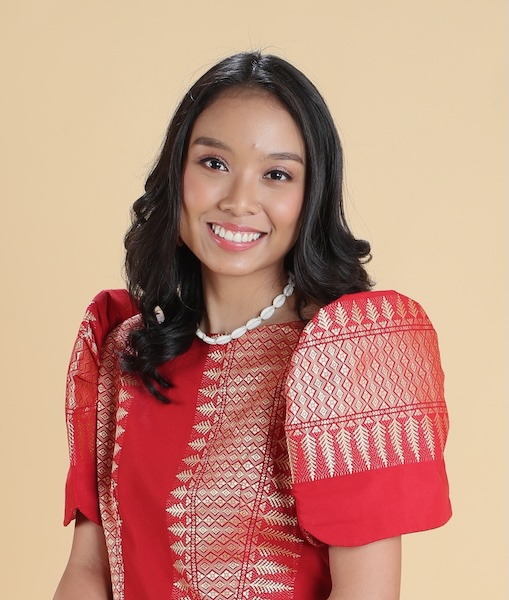
Phoebe De Leon
Phoebe De Leon is a student from the Ateneo de Manila University majoring in political science with a joint master’s degree in public management and a minor in development and the law. She is a member of the IAJU Global Citizenship Fellows Program 2025 cohort and serves an an Alumni Ambassador for the IAJU Global Citizenship Curriculum Project for fall 2025. Born in Iloilo City and raised between Manila, Legazpi City, and eventually Kuwait, Phoebe is a girl of many roots. Phoebe’s adventurous spirit brings her on long walks, new commute routes, and the occasional trip outside of her home city. When time permits, Phoebe loves telling stories and making things with her hands. She hopes to pursue a career in peacebuilding and social healing after completing her studies.
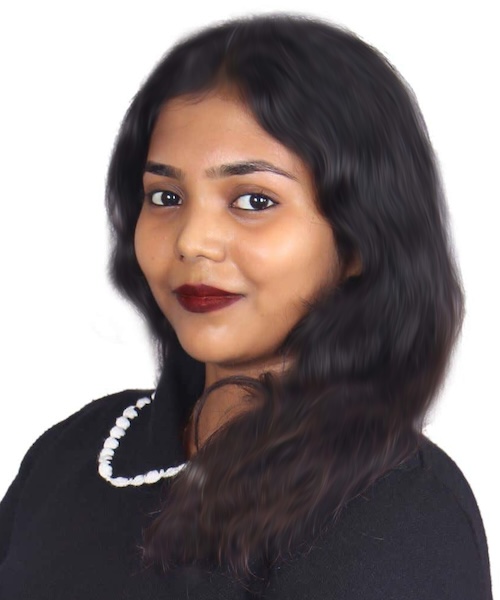
R. Sonali Devi
R. Sonali Devi is a student at Loyola College pursuing a master’s degree in international relations from Tamil Nadu, India. She is a member of the IAJU Global Citizenship Fellows Program 2025 cohort, and she serves as an Alumni Ambassador for the IAJU Global Citizenship Curriculum Project for fall 2025. Sonali holds a bachelor’s degree in social work from the Madras School of Social Work. With a strong focus on humanitarian work, refugee assistance, and global policy, Sonali has gained experience through NGO work, research and publications on refugees, and volunteering at international events. Her expertise includes global citizenship, unarmed civilian protection, feminist foreign policy, human rights, and policy analysis. Sonali is passionate about creating lasting social impact through her work and aims to contribute meaningfully to international organizations. She is dedicated to advancing refugee rights, humanitarian aid, conflict resolution, and advocating for policies that promote global peace, justice, equality, and sustainable development.
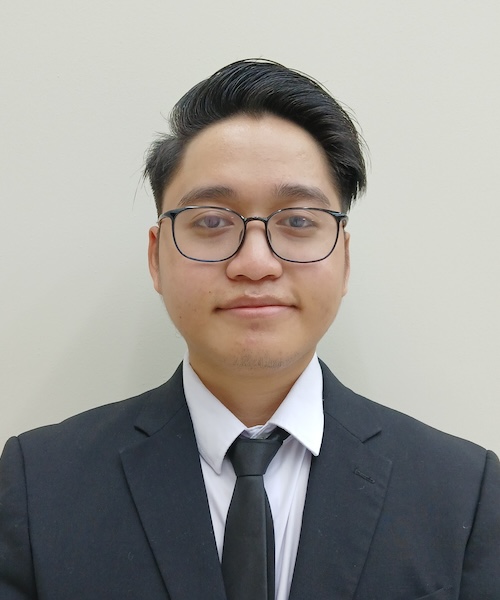
Saw Bwe Lu Kwe
Saw Bwe Lu Kwe is a student at Saengtham College, Xavier Campus in Chiang Rai, Thailand, pursuing a bachelor’s degree in English. He is a member of the IAJU Global Citizenship Fellows Program 2025 cohort, and he serves as an Alumni Ambassador for the IAJU Global Citizenship Curriculum Project for fall 2025. Saw is originally from Yangon, Myanmar, and has developed a strong interest in global citizenship, particularly in addressing environmental issues. With experience at organizations like Environment Health and Safety Myanmar and the Young Men’s Christian Association, his mission is to address environmental concerns such as food waste and plastic reduction by educating and raising awareness among affected communities. Saw believes that with dedication, commitment, and work, this program will provide the knowledge and skills necessary to make meaningful impacts in his community.
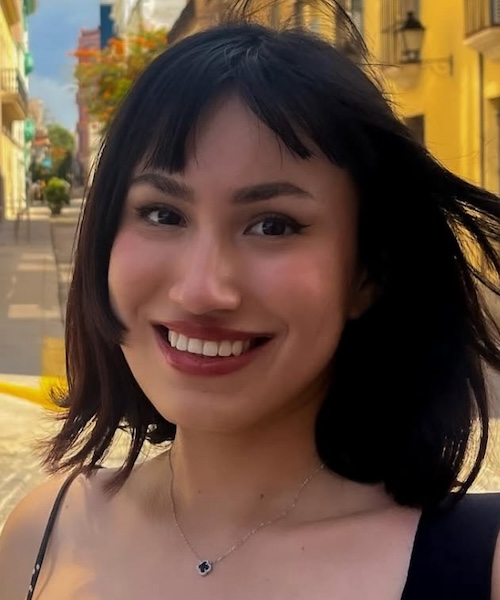
Durga Valentina Linares Herrera
Durga Valentina Linares Herrera is an undergraduate student in political science at Universidad Antonio Ruiz de Montoya in Lima. She currently serves as a research assistant on a project about labor markets and their exposure to artificial intelligence in Peru. She is a member of the IAJU Global Citizenship Fellows Program 2024 cohort, and she serves as an Alumni Ambassador for the IAJU Global Citizenship Curriculum Project for fall 2025. As a Magis Exchange student, she completed an academic exchange at Universidad Loyola Andalucía in Spain. Her academic interests include development economics, international development, and the role of local and regional perspectives in shaping international politics.
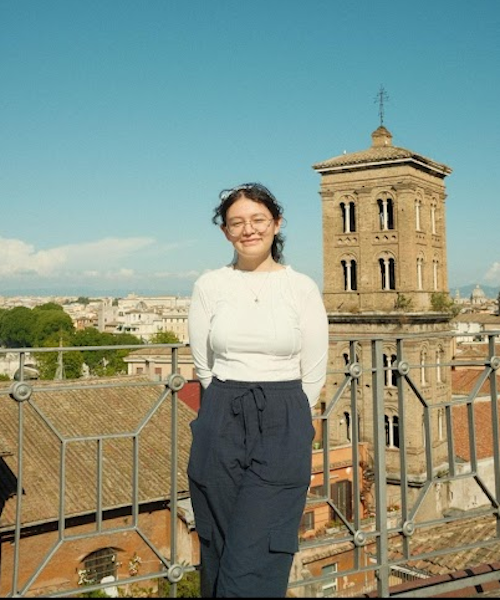
Paola Murillo Jiménez
Born and raised in Quito, Ecuador, Paola Murillo Jiménez is an undergraduate student at Pontificia Universidad Católica del Ecuador (PUCE) majoring in linguistics. As a language and linguistics enthusiast, she has had the opportunity to volunteer for different embassies’ events, be a staff member at linguistics congresses, and be involved in academic research and colloquiums. In addition, she was honored to win first place at the International Essay Contest for Young People in 2022. Due to her strong interest in linguistic policy, she hopes to become an interpreter. She is a member of the IAJU Global Citizenship Fellows Program 2024 cohort, and she serves as an Alumni Ambassador for the IAJU Global Citizenship Curriculum Project for fall 2025.

Ruth Noll
Ruth Noll (C’27) is studying comparative literature on the pre-health track at Georgetown University. Ruth has academic interests in literature, genetics, and the medical humanities. She volunteers at a hospital and in a research lab as well as participating in various clubs and activities at Georgetown. She also enjoys teaching dance classes and tutoring. She is a member of the IAJU Global Citizenship Fellows Program 2024 cohort, and she serves as an Alumni Ambassador for the IAJU Global Citizenship Curriculum Project for fall 2025.
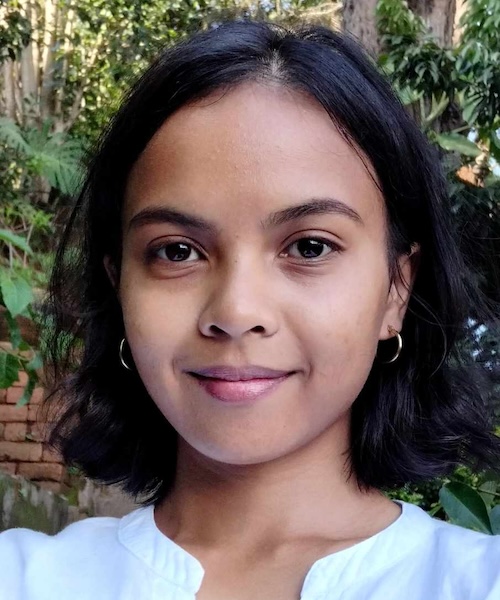
Maeva Razafinjato
Maeva Lauren Razafinjato is a student at the Magis University Bevalala, Madagascar and is a member of the IAJU Global Citizenship Fellow Program 2025 cohort, and she serves as an Alumni Ambassador for the IAJU Global Citizenship Curriculum Project for fall 2025. Her interest in sustainability and food security has led her to pursue a bachelor’s degree in agricultural sciences specializing in agricultural sociology and management. Her academic journey helped her understand the importance of cross-cultural exchange and dialogue for an effective collaboration in addressing global challenges. Committed to building a better world, she advocates for sustainable agriculture when opportunities arise. She believes that access to safe and nutritious food is a fundamental right and that agriculture plays a key role in building a more just and resilient world. Maeva is eager to collaborate with diverse individuals who share a vision for a better world, grow as a leader and contribute to meaningful initiatives.
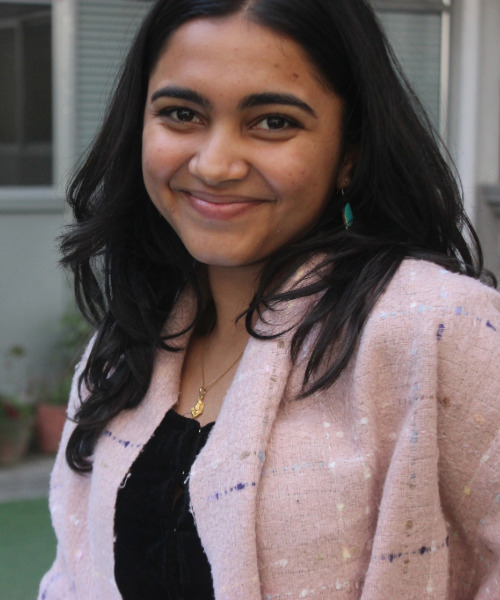
Bhargavi Wasti
Bhargavi Wasti is a student at St. Xavier's College, Kathmandu, pursuing a bachelor of science in microbiology. She has been a director and vice-chair of Nepal's only debating body, Debate Network Nepal. Her interest lies in empowering young people through discourse and leadership. Bhargavi is a member of the IAJU Global Citizenship Fellows Program 2024 cohort, and she serves as an Alumni Ambassador for the IAJU Global Citizenship Curriculum Project for fall 2025.
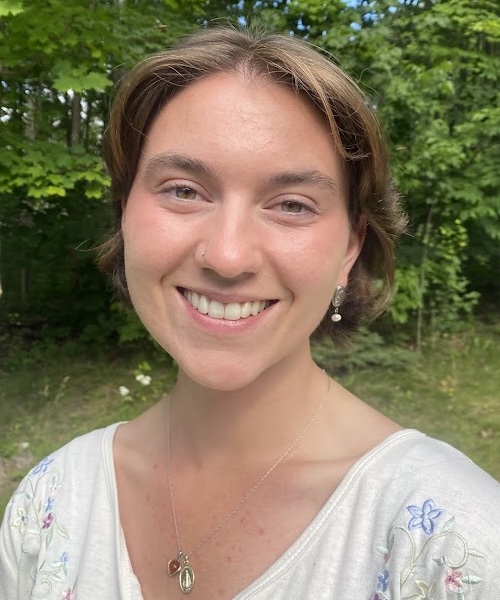
Katie Wojda
Katie Wojda is a Master of Divinity student at Loyola University Chicago’s Institute of Pastoral Studies. She is a member of the IAJU Global Citizenship Fellows Program 2025 cohort, and serves an an Alumni Ambassador for the IAJU Global Citizenship Curriculum Project for fall 2025. She has been interested in building international relationships since she was in high school, where she received the opportunity to be an exchange student in Tandil, Argentina. On her way to getting her bachelor’s degree in English and Spanish at the University of Portland, Katie was able to study abroad for a semester in Spain. Her interest in Jesuit spirituality and mission was drawn out during her year in the Jesuit Volunteer Corps, and in October 2024 she travelled to Rome to speak with delegates for the Synod on Synodality with the CENTERS cohort (Catholic Education Network to Engage Rome and Synodality).
